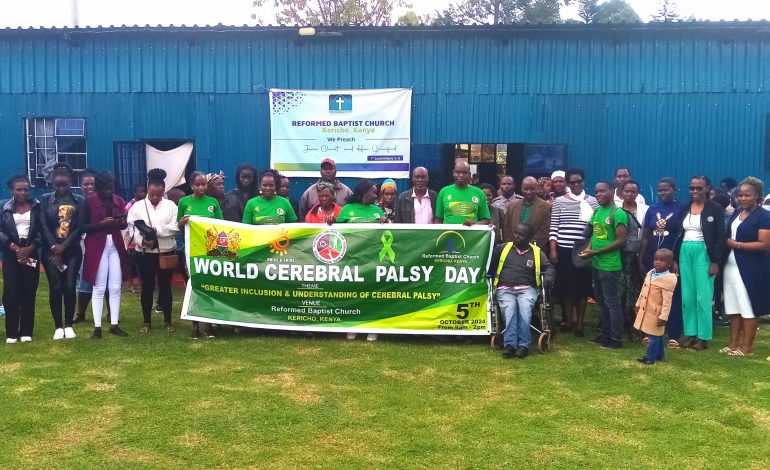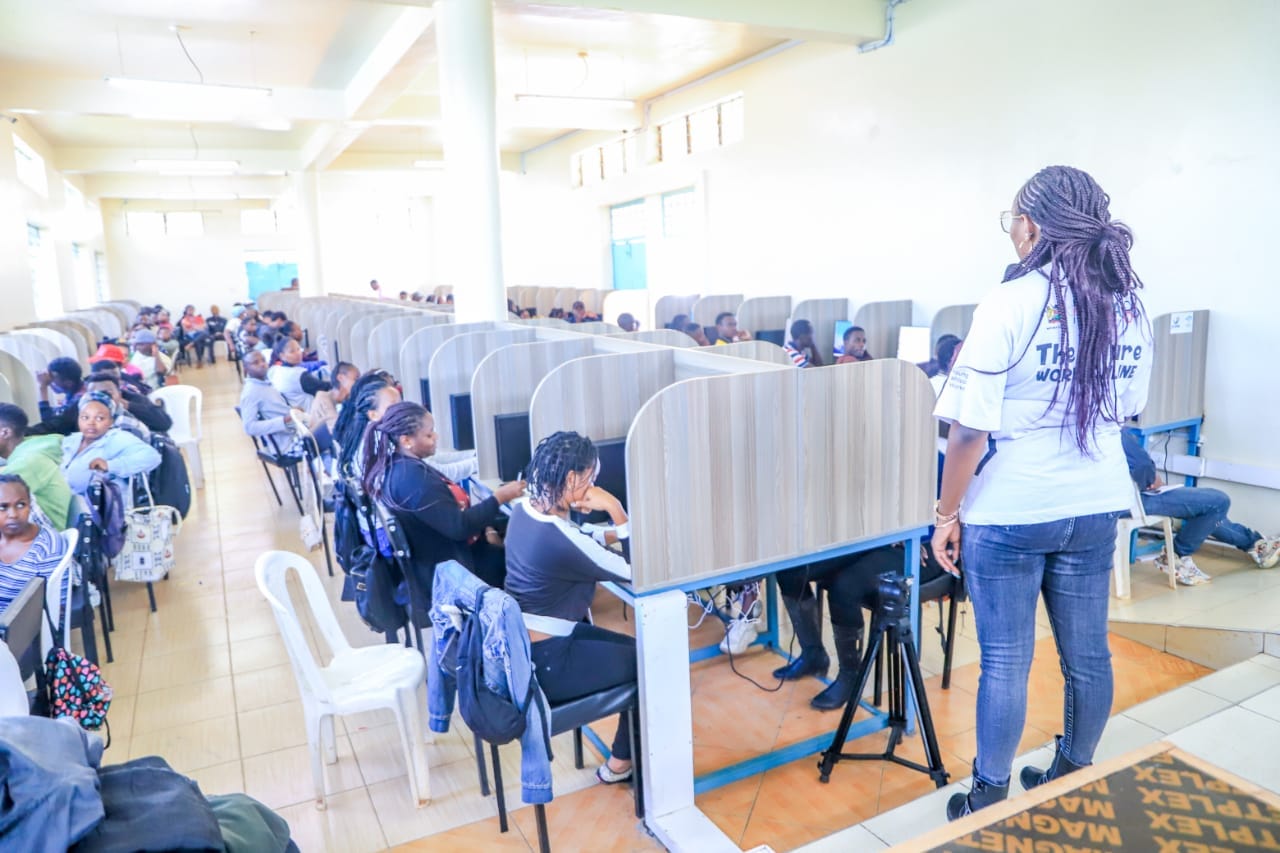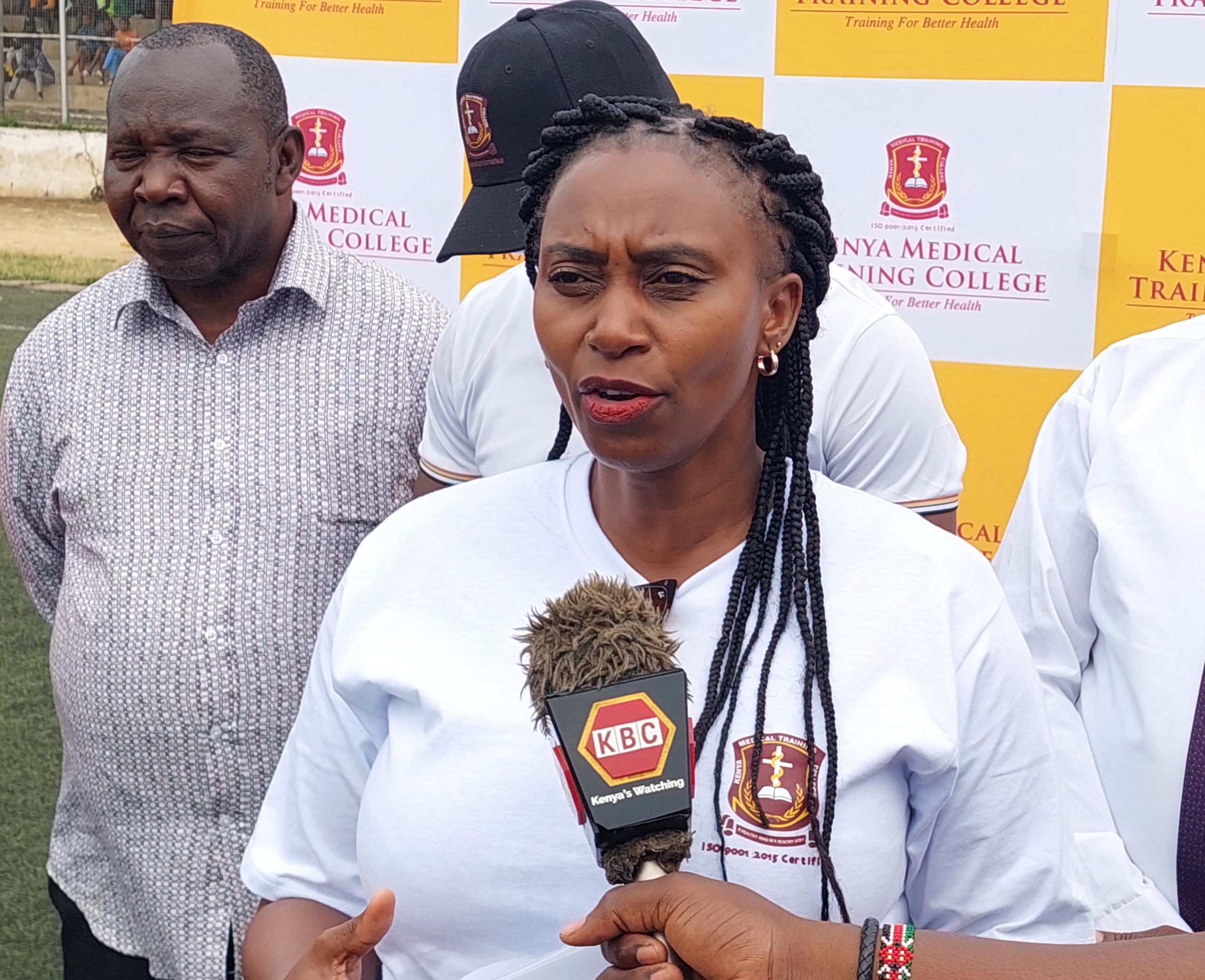The National Council for Persons with Disability (NCPWD) has urged residents with children suffering from Cerebral Palsy (CP) to come forth and register them to acquire a disability card which will enable them to be issued with enabling devices such as wheelchairs.
Speaking to Kenya News Agency during world Cerebral Palsy celebrations at Reformed Baptist Church ground in Ainamoi Sub-County, Kericho County, the County Disability Service Officer Mr Hopkins Olasi said there are people who live with cerebral palsy patients in their homes yet they lack awareness on how to register them.
The Officer further called upon the residents of Kericho to come forth register the people with this condition adding that registration of people with disabilities also helps the government, through the NCPWD, to design appropriate programs to meet the specific needs of People with Disabilities depending on the type of disabilities, their socio-economic needs, and poverty levels among other things.
“Medical statistics indicate that over 300 people suffer from Cerebral palsy in Kericho County. Cerebral palsy, like many other lifelong disorders, can get quite costly. Many parents are unprepared for the expenses of raising a child with cerebral palsy. Cerebral Palsy government assistance can help qualified families get the financial support they need and that is why it is important to register the patients.” added Olasi.
According to the Doctor in charge of occupational therapy in Kericho County Referral Hospital Dr. Bora Tonui, Cerebral palsy is a group of conditions that affect movement and posture adding that the condition is caused by damage that occurs to the developing brain, most often before birth.
The Doctor added that the symptoms appear during infancy or pre-school years and can vary from very mild to serious.
“Children with cerebral palsy may have exaggerated reflexes. The arms, legs and trunk may appear floppy. Or they may have stiff muscles, known as spasticity. Symptoms also can include irregular posture, movements that cannot be controlled, a walk that is not steady or some combination of these. Cerebral palsy may make it hard to swallow. It also can cause eye muscle imbalance, in which the eyes don’t focus on the same object. People with the condition might have reduced range of motion in their joints due to muscle stiffness.” Added Dr. Bora.
Also present at the function was Kericho County Referral Hospital Physiotherapist, Dr. Milka Mwajuma who recognised the determination of care givers and the complexities of their roles in looking after CP patients.
“Caring for someone with CP can be difficult. Being a family caregiver takes a toll on the individual’s professional and personal life. If you are caring for a loved one with Cerebral Palsy, it is imperative to monitor your own condition to prevent burnout.” Dr. Mwajuma added
She added that Physiotherapy focuses on function, movement, and optimal use of the child’s potential using physical approaches to promote, maintain and restore physical, psychological and social well-being within all environments including home, school, recreation, and community environments.
Dr. Mwajuma explained that Cerebral Palsy patients have difficulty communicating and often use signing, communication boards, or non-verbal cues adding that a family caregiver goes through a hard time learning how to communicate with the individual and helping them improve their communication skills.
Mama Vincent who is parent to a CP patient said she experiences a lot of social problems, depression, and financial difficulties following high costs of treatment and rehabilitation, which has significantly contributed to her poor psychosocial well-being and life satisfaction when compared to other parents whose children have normal development.
“I was shocked when they told me that my child would live with the condition for the rest of his life. But with time I came to accept it and decided to try my best in ensuring that he lives a normal life. It hasn’t been easy”. She said
Mama Vincent’s predicament is a representation of what millions of parents and caregivers go through daily in their quest to cater for patients diagnosed with Cerebral Palsy in the country. For these parents and guardians, the diagnosis that their bundle of joy has Cerebral Palsy is a life defining moment.
According to the World Health Organization (WHO), Children with developmental disabilities are likely to experience unmet service needs, which will affect them and their families. Integrated care plans across all agencies involved in caring for children with Cerebral Palsy are essential in providing high quality care. A plan should contain general principles of care agreed by all members in the decision-making team and adapted to fit the local context taking into consideration differences in culture, educational levels of parents or caregivers, availability of trained health care providers and local resources.









